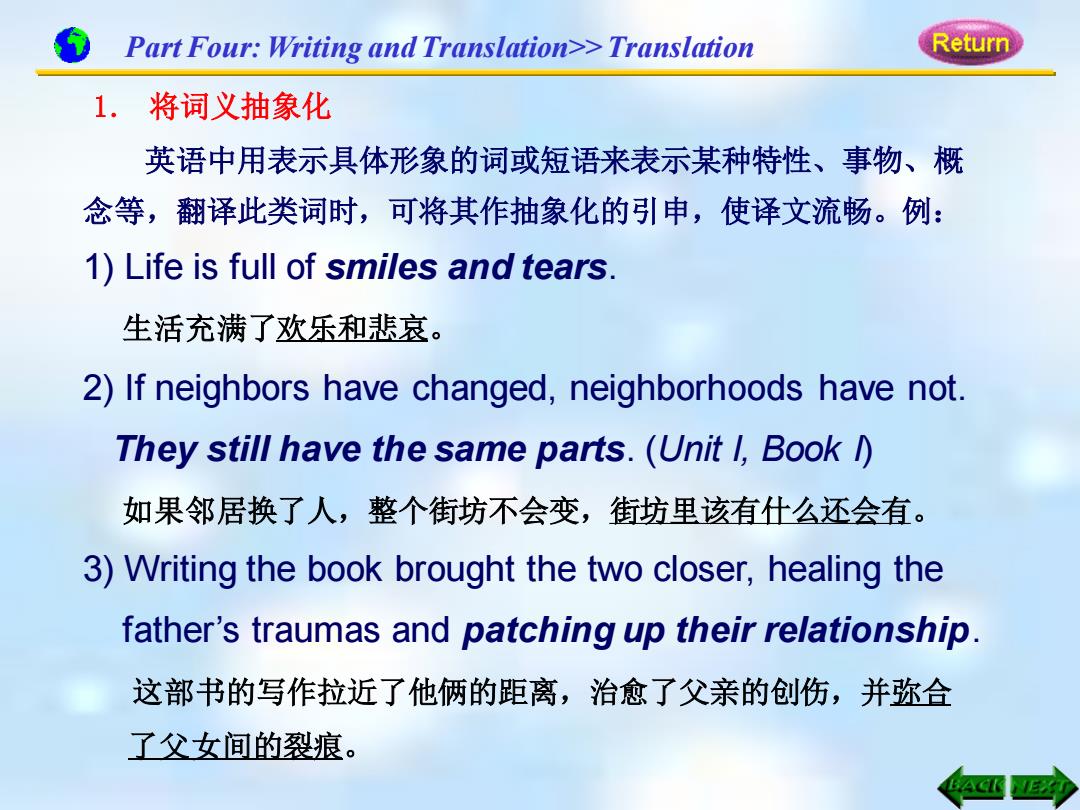正在加载图片...

Part Four:Writing and Translation>>Translation Return 1.将词义抽象化 英语中用表示具体形象的词或短语来表示某种特性、事物、概 念等,翻译此类词时,可将其作抽象化的引申,使译文流畅。例: 1)Life is full of smiles and tears. 生活充满了欢乐和悲哀。 2)If neighbors have changed,neighborhoods have not. They still have the same parts.(Unit I,Book 如果邻居换了人,整个街坊不会变,街坊里该有什么还会有。 3)Writing the book brought the two closer,healing the father's traumas and patching up their relationship. 这部书的写作拉近了他俩的距离,治愈了父亲的创伤,并弥合 了父女间的裂痕。1. 将词义抽象化 英语中用表示具体形象的词或短语来表示某种特性、事物、概 念等,翻译此类词时,可将其作抽象化的引申,使译文流畅。例: 1) Life is full of smiles and tears. 生活充满了欢乐和悲哀。 2) If neighbors have changed, neighborhoods have not. They still have the same parts. (Unit I, Book I) 如果邻居换了人,整个街坊不会变,街坊里该有什么还会有。 3) Writing the book brought the two closer, healing the father’s traumas and patching up their relationship. 这部书的写作拉近了他俩的距离,治愈了父亲的创伤,并弥合 了父女间的裂痕。 Part Four: Writing and Translation>> Translation